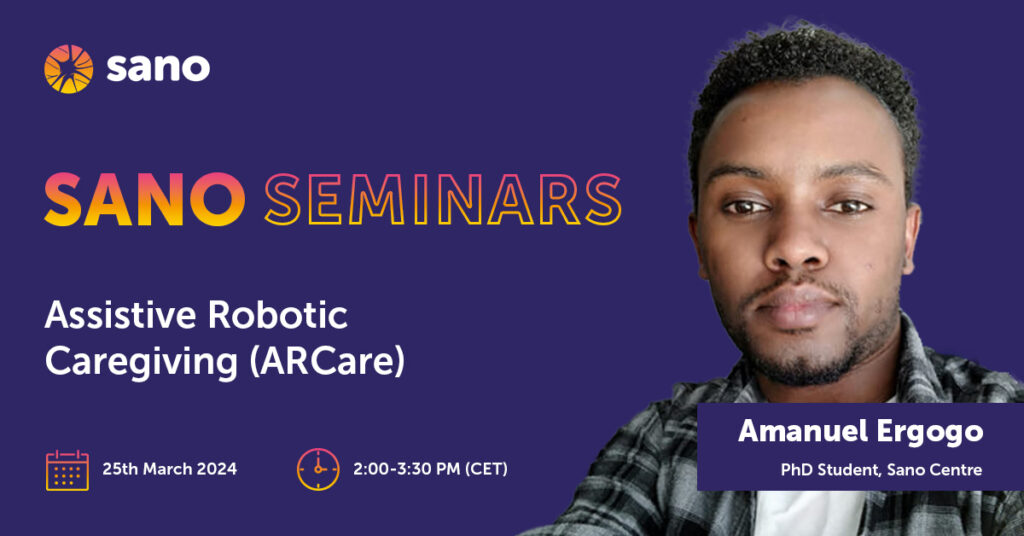127. Assistive Robotic Caregiving (ARCare)
Amanuel Ergogo – PhD Student, Health Informatics Team, Sano Centre for Computational Medicine, Krakow, PL
Abstract
Challenges in healthcare, such as an aging population, rising healthcare costs, shortages of health workers, people with disabilities, caregivers’ prolonged stress and physical demands, and the desire for independent living, have prompted the healthcare industry and individuals to seek assistance from intelligent machines. Recent advances in AI and machine learning have facilitated the application of robotic systems into various domains, particularly in healthcare robotics, where robots assist humans to improve the quality of life. Unlike industrial robots, which operate in structured and less dynamic environments, in assistive caregiving, robots must possess advanced skills to comprehend human intentions and interact effectively with both humans and the environment. Designing a robotic assistant for dynamic human-centered environments presents technical challenges. These challenges include adaptability to diverse situations, learning from human and environmental interactions, developing human intention inference, and ensuring the naturalness of robot behavior for better user trust and acceptance. ARCare aims to develop a robotic system for understanding human activities and providing the necessary assistance or care with daily living tasks. The presentation will address sensing, perception, and planning to manipulate care objects and understand human intentions to offer proactive care.
About author
Amanuel is a Ph.D. student at the Sano Centre for Computational Medicine. He obtained his BSc in Electrical and Computer Engineering in Ethiopia and worked as an assistant lecturer at the same university where he obtained his bachelor’s degree. He then moved to Poland for his M.Eng in Control Engineering and Robotics from Wroclaw University of Science and Technology. His master’s thesis dealt with autonomous mobile robot localization in indoor and harsh environmental conditions. His main research interest is in computer vision and deep learning for motion planning, controls, and robot autonomy.


